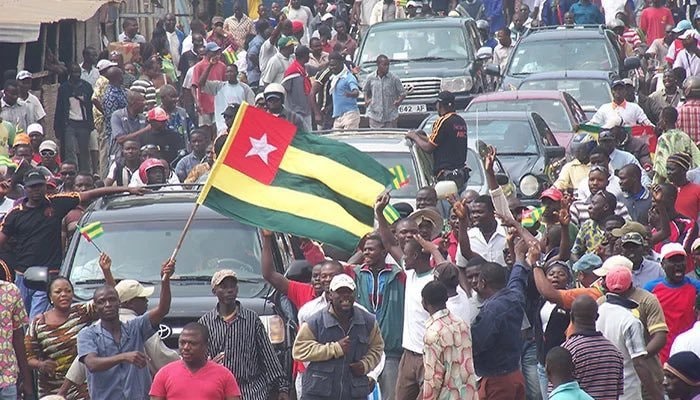Togo is facing growing political tension after recent constitutional reforms sparked street protests and strong criticism from civil society, opposition politicians, and human rights groups. The controversial reform, approved in April 2024 by the Togolese parliament dominated by the ruling Union pour la République (UNIR), changed the country’s presidential system to a parliamentary one. However, many critics say the new structure could help President Faure Gnassingbé retain power indefinitely.
The reform introduced a new position called the President of the Council of Ministers, a role that has been described as powerful but without clear limits. The opposition called this change a “constitutional coup,” saying it was designed to allow Gnassingbé to stay in power even after appointing a ceremonial president. As critics predicted, Faure Gnassingbé was sworn into the new role on May 3, 2025. Meanwhile, 86-year-old Jean-Lucien Savi de Tove was appointed as president — the oldest to ever hold the office in Togo.
The move has triggered widespread anger in the country, where the cost of living is already high and frustrations with long-standing political leadership are boiling over. Demonstrations erupted in the capital, Lomé, especially after the arrest and reported torture of popular rapper Aamron. Thousands of protesters stormed the streets in late June, demanding Gnassingbé’s resignation. Security forces responded with tear gas, and several violent clashes broke out. According to a coalition of civil society groups, at least seven people died during the protests, including two minors whose bodies were later discovered in lagoons around Lomé.
The Togolese government claimed that the deaths were due to drowning and advised citizens to be cautious around water during the rainy season. But this explanation did not satisfy the protesters. The ‘Don’t Touch My Constitution’ movement has called for an international investigation. Togo’s Catholic Bishops also described the government’s violent response as unjustified and unacceptable.
The group Le Front Citoyen Togo Debout, made up of 12 civil society and human rights organisations, accused security officials of beating civilians, arresting them without cause, and destroying private property during the unrest. Protesters have been calling for more transparency, fairness, and democratic governance.
Faure Gnassingbé has been president since 2005, after taking over from his father, the late Gnassingbé Eyadéma, who ruled Togo for 38 years following a military coup in 1967. That means the father and son have ruled the West African country for nearly 60 years. Despite introducing a multi-party system and investing in infrastructure, critics say the younger Gnassingbé is trying to match his father’s long stay in power. With 60% of Togolese under the age of 35, most citizens have never known another family in charge.
Constitutional amendments in 2019 allowed Gnassingbé to run again in 2020 and 2025 by resetting his term count. The latest 2024 reforms initially seemed to limit power by making the presidency a single six-year term, but the new executive role of President of the Council of Ministers has raised fears that real power still rests in Gnassingbé’s hands.
Opposition leaders and activists say the government is now targeting them. Many protest organisers are in exile in countries like France and the United States. The Togolese government recently issued international arrest warrants against leaders of the M66 Citizens’ Movement — named after Gnassingbé’s June 6 birthday — accusing them of promoting terrorism and unrest.
Security Minister Calixte Madjoulba said foreign governments should help locate and return the activists. “Wherever they are, we will pursue them,” he said at a press briefing. M66 members, however, say they are not intimidated and have called for further protests on July 16 and 17 to boycott upcoming municipal elections.
The elections are part of the government’s plan to decentralize power and improve local governance. Local council elections had not been held in Togo from 1986 to 2020. In that time, central government appointed administrators to manage local affairs — a practice many say led to corruption and lack of accountability. Although some opposition parties have called for election boycotts, Jean-Pierre Fabre, leader of the National Alliance for Change, said participating in the election is important to demonstrate alternative leadership.
The crisis in Togo continues to draw international attention, especially with increasing calls for democratic reforms and accountability. The upcoming elections may further test the country’s political stability.
